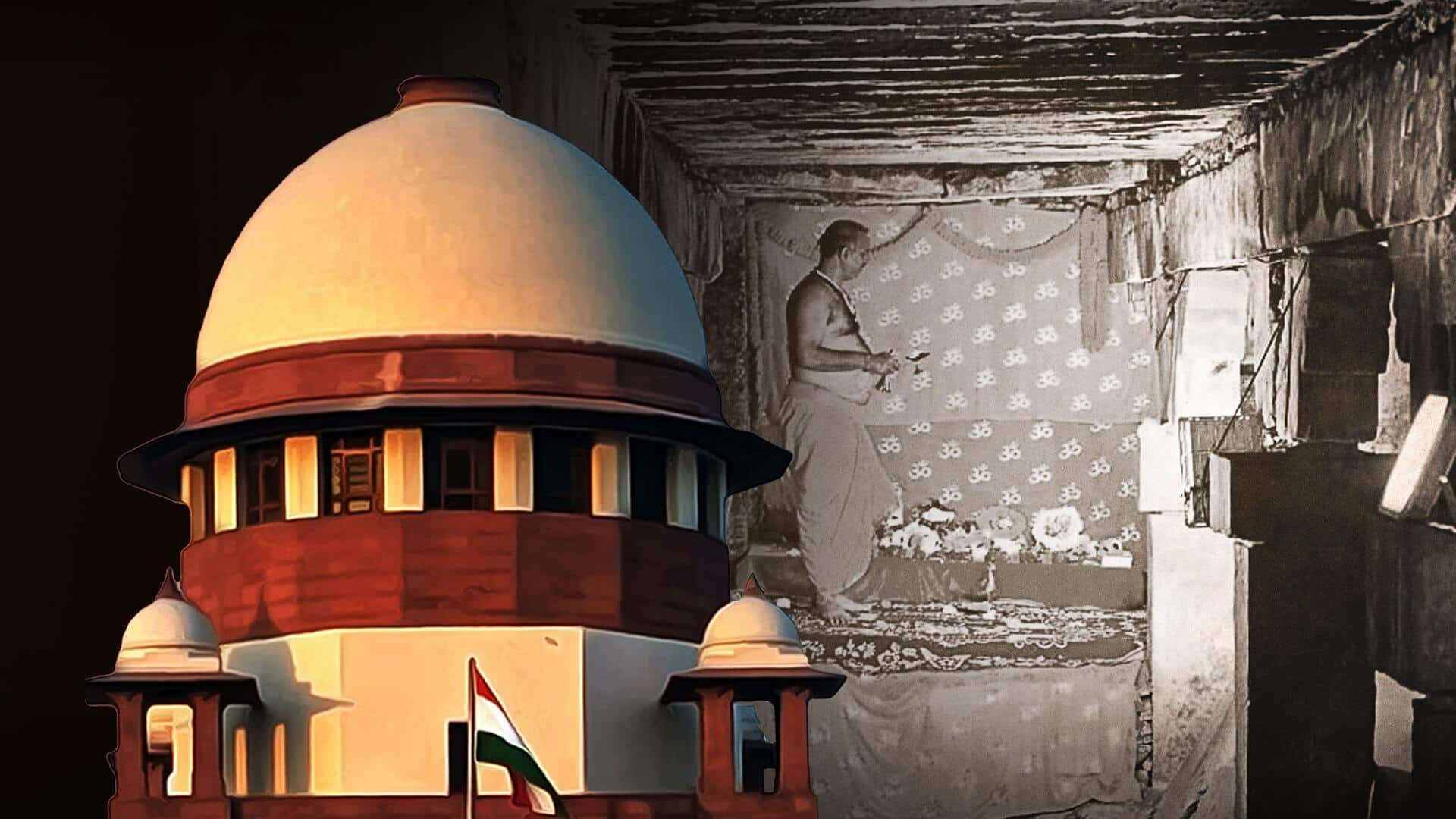
SC upholds Allahabad High Court's decision on Gyanvapi Mosque
What's the story
The Supreme Court on Monday refused to stay Allahabad High Court decision upholding a lower court's order allowing Hindu prayers in the southern cellar of the Gyanvapi Mosque. The apex court's verdict was in response to an appeal by the Anjuman Intezamia Masjid Committee, which had contested the high court's dismissal of its appeal against the initial court order.
Context
Why does this story matter?
Right-wing Hindu outfits assert that several mosques, including the Gyanvapi Mosque, were built by Muslim invaders by demolishing Hindu temples. After its formation, the Bharatiya Janata Party (BJP) fomented the matter during the 1980s and 1990s, highlighting it as a reclamation project for Hindus. However, some Hindu priests allegedly rejected those claims by right-wing organizations—especially over the Gyanvapi dispute—blaming them for inciting communal tensions. Demands for the restoration of a Hindu temple have intensified in recent years.
Plea dismissed
High Court's rejection of committee's plea upheld
Earlier this year, in February, the Allahabad HC had rejected the Anjuman Intezamia Masjid Committee's plea. The committee had disputed a district court's order from January 31 that allowed Hindus to conduct prayers in the southern cellar of the mosque. The SC has now upheld this decision, refusing to interfere with the high court's ruling.
Worship continuity
Supreme Court mandates status quo on worship
The court has now also mandated a status quo on worship for both Hindu and Muslim devotees. "Considering that namaaz is being offered without any hindrance and puja by Hindu priests is also taking place...seems fitting to order status quo for worship," stated the bench headed by Chief Justice of India DY Chandrachud. As per this order, Muslims can continue their prayers at the mosque from the northern side, while Hindus can enter from the southern side for their puja.
Verdict details
District court's verdict on Gyanvapi Mosque's southern cellar
On January 31, the Varanasi district court had ruled that Hindus could conduct prayers in the southern cellar or Vyas Tehkhana of the Gyanvapi Mosque. This decision was announced six days after litigants received copies of an Archaeological Survey of India's report which claimed that a Hindu temple existed before the construction of the mosque. The district court also instructed that a priest should be allowed to perform puja in this part of the mosque complex.
Committee's stand
Anjuman Intezamia Masajid Committee's appeal and response
The Anjuman Intezamia Masajid Committee, which oversees the mosque located next to Kashi Vishwanath Temple, had filed an urgent application in the SC against the district court's order. The committee argued that there were no idols in the cellar and no prayers had ever been conducted there. However, they were advised to first approach the Allahabad HC.